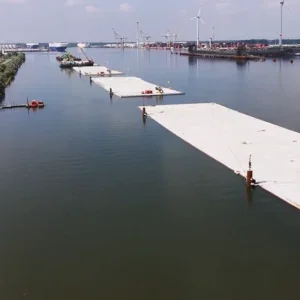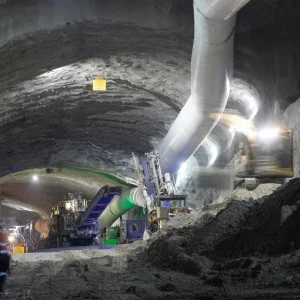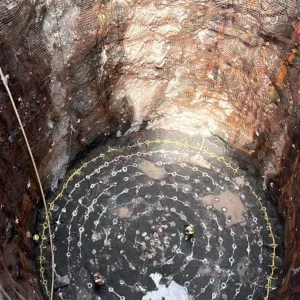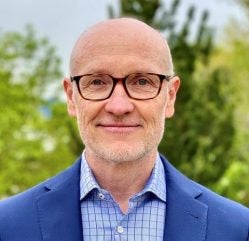
The two keynote speakers – Professor Mike Mooney from the Colorado School of Mines and Nick Sumption, i3P delivery lead – will focus on innovation and AI.
Mooney will discuss the present and potential of AI innovation in tunnel design and construction, while Sumption will outline how innovation is a force for change.
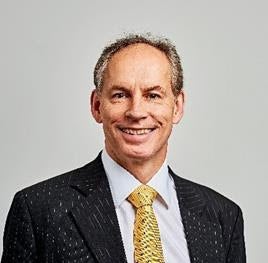
Sumption has held key positions in the infrastructure sector, focusing on driving transformational change through a collaborative mindset. He was part of the team that established the Thames Tideway Tunnel project and was a co-creator of i3P.
The speaker line-up announced so far also includes Eugenio Valli, president of the Swiss Federal Institute of Technology’s Swissloop Tunneling, winner of this year’s Not-a-Boring Competition.
Founded in 2020, Swissloop Tunneling is a student association aimed at developing faster, continuous, and resource efficient tunnelling in a bid to accelerate the pace of underground construction. Valli’s presentation will highlight the team’s technology and its industry impact.
Dr Renalt Capes will outline interferometric synthetic aperture radar (InSAR), a space-based technology able to measure millimetre-scale displacements on the earth’s surface and structures. In recent years InSAR has become a routine tool to complement existing survey technologies in all stages of tunnelling, from design through to post-construction settlement monitoring.
Dr Jiang Su, chief tunnel engineer at AtkinsRéalis, will discuss stress distribution in composite tunnel linings. Composite tunnel linings have been adopted in major tunnel projects such as Crossrail and Thames Tideway but understanding and predicting the lining stress distribution between the two layers remains a challenge.
This presentation will showcase two recent case studies where numerical back analysis and design predictions align closely with in situ monitoring data and site measurements. These findings highlight the importance of selecting appropriate modelling methodologies, offering enhanced insights into load sharing within composite tunnel linings.
Dr Benoit Jones, managing director of Inbye Engineering, will discuss the route to low carbon concrete linings – an important issue for the industry when the concrete tunnel lining represents 60-80% of a project’s embodied CO2e emissions.
Professor Panos Spyridis of the University of Rostock will also focus on climate change. He will explore how engineers can reduce the environmental impact of tunnels from the earliest design stages, without compromising structural safety.
His presentation will look at how early-stage design decisions impact material requirements and overall emissions; integrating sustainability into existing safety codes with the “Climate Limit State” concept; and real-world examples of optimising tunnel cross-sections, material choices, and lining design for long-term, sustainable performance.
Tom Crabtree, senior site manager and Oliver Gerstmann, production manager, from Wayss & Freytag, will outline the casting of concrete ‘mega columns’ underground in central Gothenburg. The 17 columns for Gothenburg’s rail project were cast in situ with high-strength C60/75 self-compacting concrete. The 12m-high structures support a 50m-wide roof.
The BTS Conference will be held on October 8-9 at the QEII Conference Centre in London. Further details of the programme will be announced soon.
For more information click here [https://www.btsconference.com]



